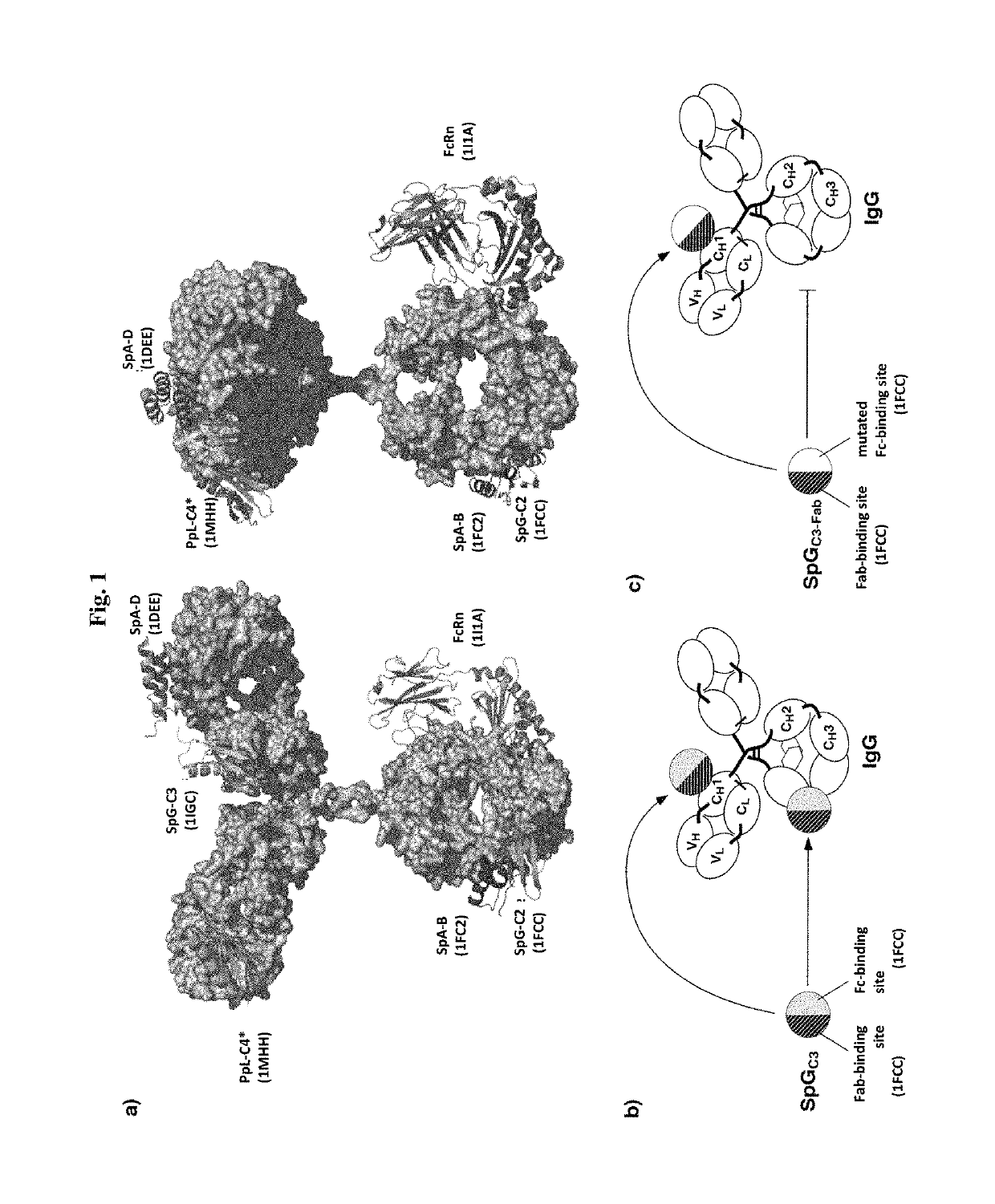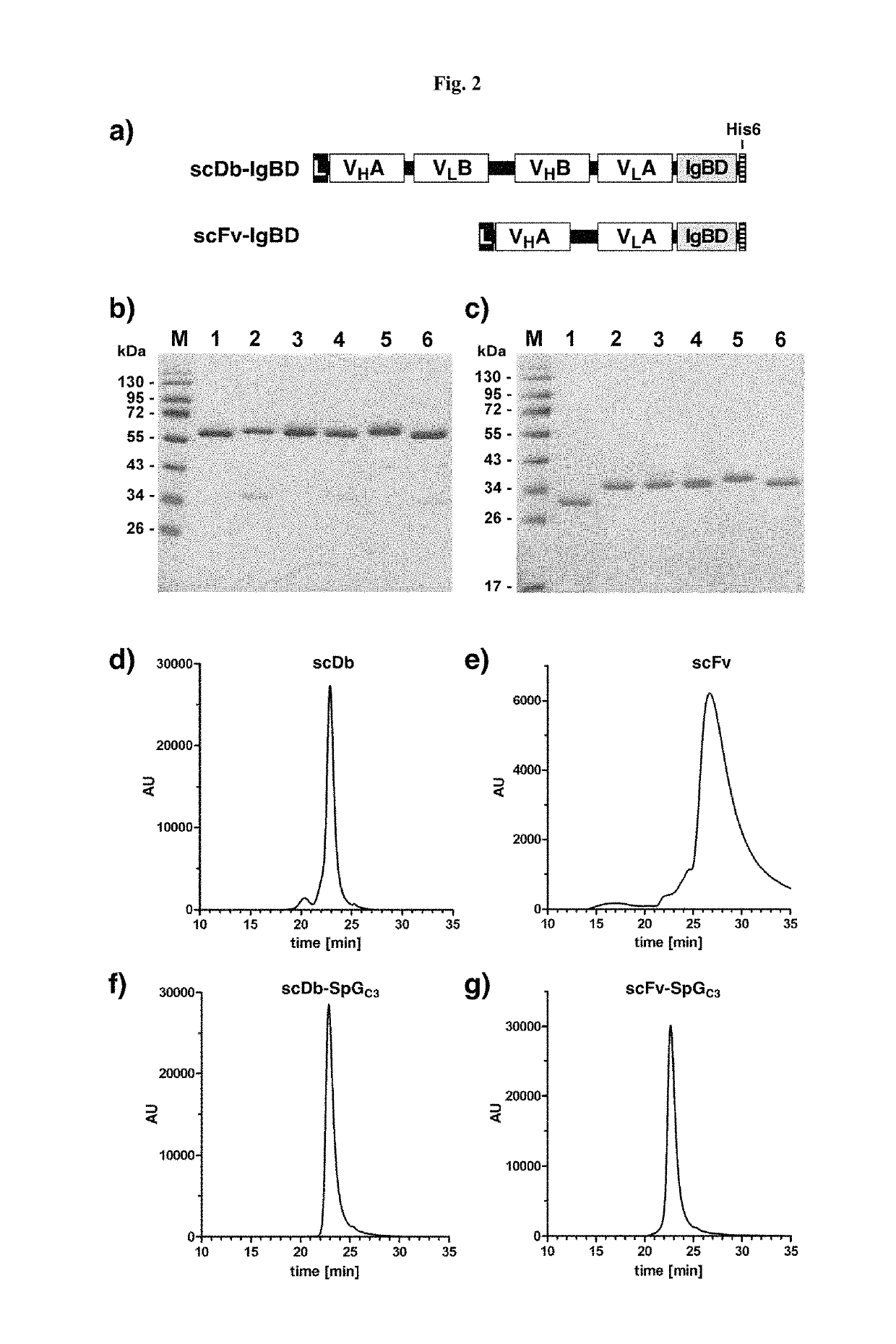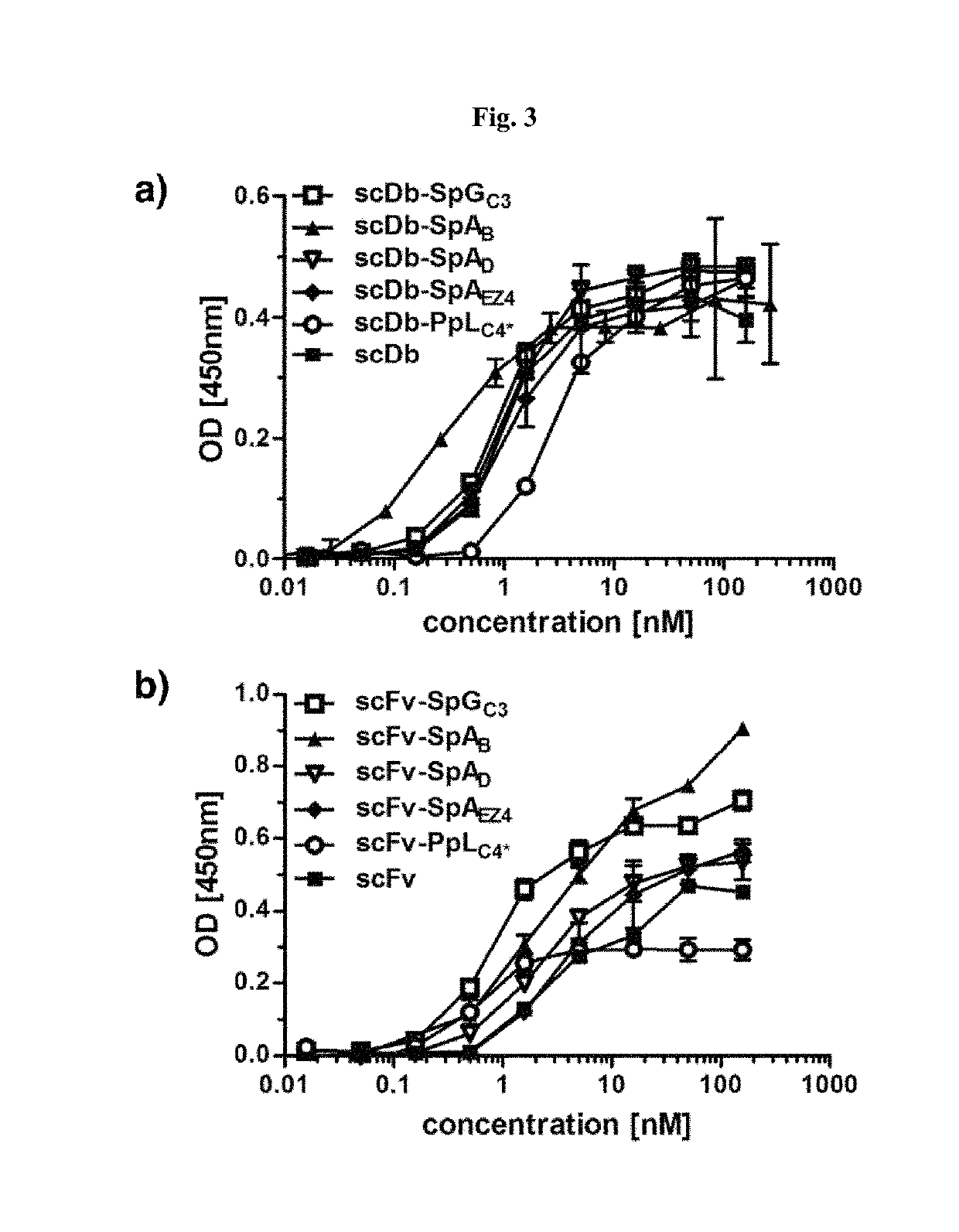Serum half-life extension using IgBD
a technology of serum and half-life extension, which is applied in the direction of antibody medical ingredients, drug compositions, immunological disorders, etc., can solve the problems of drug concentrations in blood that are not instantaneous, albumin and abd fusion proteins cannot reach the long half-life of igg molecules, and the drug concentration does not reach instantaneous distribution,
- Summary
- Abstract
- Description
- Claims
- Application Information
AI Technical Summary
Benefits of technology
Problems solved by technology
Method used
Image
Examples
embodiments
[0089]In a first aspect the present invention relates to a complex comprising (i) an immunoglobulin (Ig) binding moiety and (ii) a pharmaceutically active moiety, wherein the Ig binding moiety specifically binds to the constant domain 1 of the heavy chain (CH1) of an Ig molecule.
[0090]In preferred embodiments, the Ig binding moiety prolongs the serum half-life of the pharmaceutically active moiety, i.e. the pharmaceutically active moiety exhibits a prolonged serum half-life when being part of the complex of the first aspect of the invention. In preferred embodiments the complex of the first aspect is thus, used for extending the serum half-life, preferably the serum half-life of the pharmaceutically active moiety. It is particularly preferred that the initial and / or the terminal serum half-life are extended. It is further preferred that the bioavailabilty, more preferably the bioavailabilty of the pharmaceutically active moiety, is increased.
[0091]In the context of the present inven...
example 1
ion and Production of scDb-IgBD Fusion Proteins
[0137]DNA encoding the IgBDs (IgBD SpAB, SpAD, SpAEZ4, SpGC3, and PpLC4*) including a hexahistidyl-tag at the C-terminus were synthesized by GeneArt (Regensburg, Germany) adding a NotI at the 5′ end and an EcoRI and XbaI site at the 3′ end. IgBD SpAB was cloned into mammalian expression vector pSecTagAHis scDb-CEACD3-ABD-L (Hopp et al. (2010) Protein Eng. Des. Sel. 23:827-834) cut with NotI and XbaI. The IgBD SpAD, SpAEZ4, SpGC3, and PpLC4* were then cloned into scDb-CEACD3-SpAB as NotI-EcoRI fragments substituting the SpAB IgBD. Composition of the scDb-IgBD fusion proteins are given in FIG. 2a. HEK293 cells were stably transfected and the fusion proteins scDb-SpAB, scDb-SpAD, scDb-SpAEZ4, scDb-SpGC3, and scDb-PpLC4* were purified from cell culture supernatant by IMAC essentially as described previously (Müller et al. (2007) J. Biol. Chem. 282:12650-12660). Yields of 2 to 22 mg / L supernatant were obtained. SDS-PAGE of purified fusion pr...
example 2
ion and Production of scFv-IgBD Fusion Proteins
[0138]DNA encoding the IgBDs (IgBD SpAB, SpAD, SpAEZ4, SpGC3, and PpLC4*) including a hexahistidyl-tag at the C-terminus were synthesized by GeneArt (Regensburg, Germany) adding a NotI at the 5′ end and an EcoRI and XbaI site at the 3′ end. The DNA was digested with NotI and EcoRI and cloned into vector pSecTagA-scFvCEA-4-1BBL (Müller et al. (2008) J. Immunol. 31:714-722). Composition of the scFv-IgBD fusion proteins are given in FIG. 2a. HEK293 cells were stably transfected and the fusion proteins scFv-SpAB, scFv-SpAD, scFv-SpAEZ4, scFv-SpGC3, and scFv-PpLC4* were purified from cell culture supernatant by IMAC essentially as described previously (Müller et al., (2007) J. Biol. Chem. 282:12650-12660). SDS-PAGE of purified fusion proteins was performed. Two micrograms proteins were analyzed per lane and the gel was stained with Coomassie brilliant blue G-250 (M, molecular weight standards). SDS-PAGE analysis revealed a single band under ...
PUM
 Login to View More
Login to View More Abstract
Description
Claims
Application Information
 Login to View More
Login to View More - R&D
- Intellectual Property
- Life Sciences
- Materials
- Tech Scout
- Unparalleled Data Quality
- Higher Quality Content
- 60% Fewer Hallucinations
Browse by: Latest US Patents, China's latest patents, Technical Efficacy Thesaurus, Application Domain, Technology Topic, Popular Technical Reports.
© 2025 PatSnap. All rights reserved.Legal|Privacy policy|Modern Slavery Act Transparency Statement|Sitemap|About US| Contact US: help@patsnap.com



